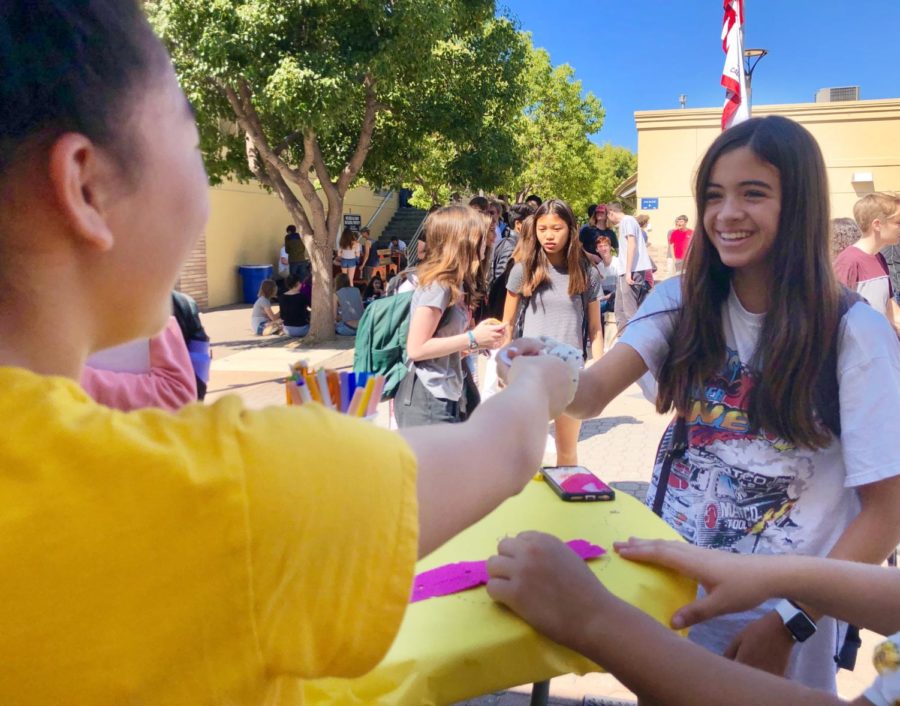The Save The Bees fundraiser, held by ASB, helped to spread awareness about the reality of our future — a future without bees.
Since 1947, the number of beehives has fallen from 6 million to 2.4 million, about a 60% reduction. The reasons for this drastic decrease include, but are not limited to, an increased use of pesticides, disease, and habitat destruction.
Although this news sounds bleak, there are ways to combat the drop in the bee population. In general, a good way to help the bees is to limit the use of the things that hurt them, such as harmful pesticides.
Carolyn Wang, a junior and ASB member, said, “Starting a bee garden and not using pesticides or supporting companies that don’t use pesticides is a great way to save the bees. Spreading the word to others also helps to make a difference.”
The Save The Bees event helped to not only spread awareness about bees but also to advocate for the support of local beekeepers by selling pins and honey sticks in the quad.
“The money we make will be used to break even with how much we spent on the items. However, we bought the honey sticks we are selling from a local honey farm in Pacifica to support local honey sources and beekeepers,” Wang said.
Belmont is home to quite a few locals who have taken the bee epidemic into their own hands by caring for a beehive.
“The environment is very important, and I think it should be a part of education. The focus on bees is just one thing, but I think across the board in the environment, whether it be the health of our rivers, the cleanliness of our air, how we recycle, all of that is really important to develop a knowledge of at a young age,” said John O’Donnell, a local beekeeper.
As the decrease in bee population is becoming more well known, sites such as The Honeybee Conservancy, which help to create more habitats for bees, have been popping up.
“We are helping the bees by spreading awareness to the students. Even though we might not be able to do as much, informing the students of the importance of bees will at least get people to start thinking about the consequences and why humans need to start taking action,” said Meagan Freeman, a junior and ASB member.

